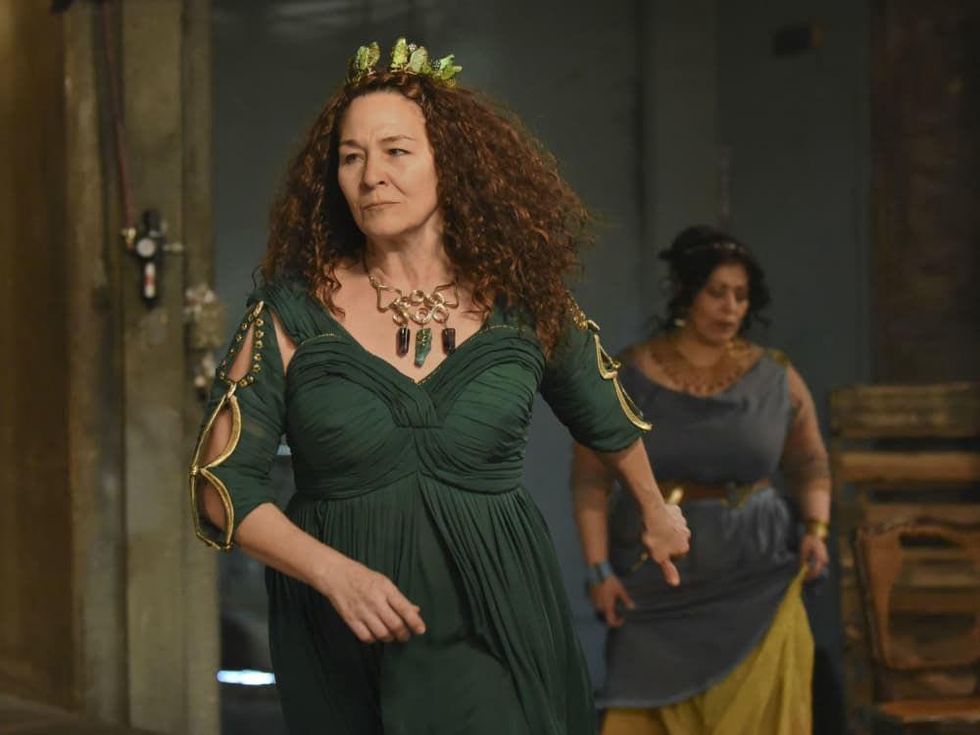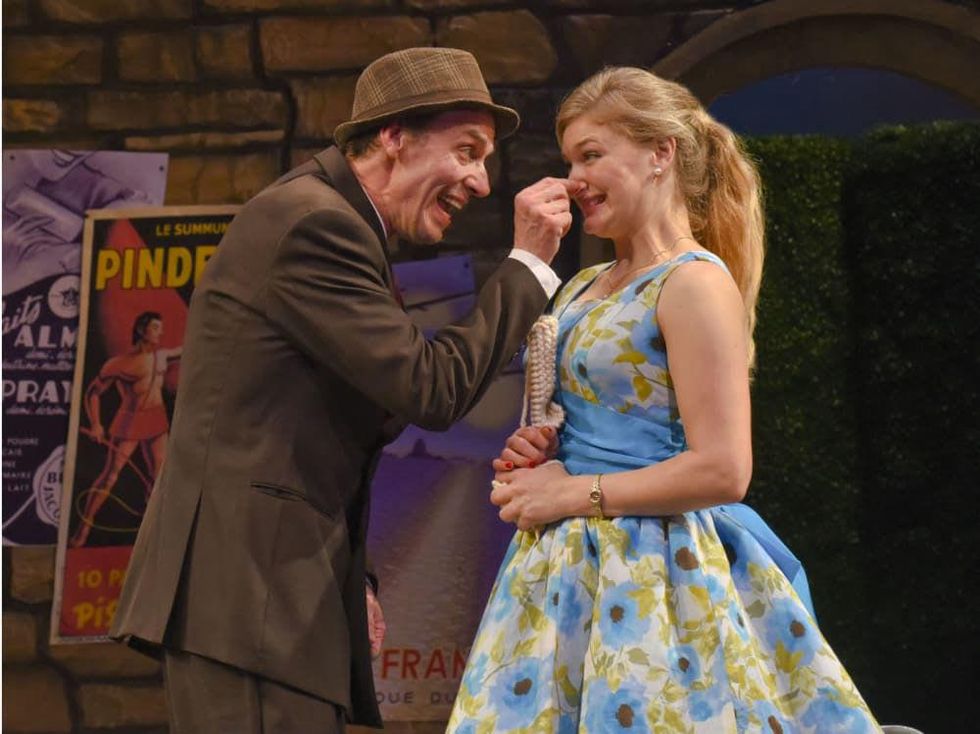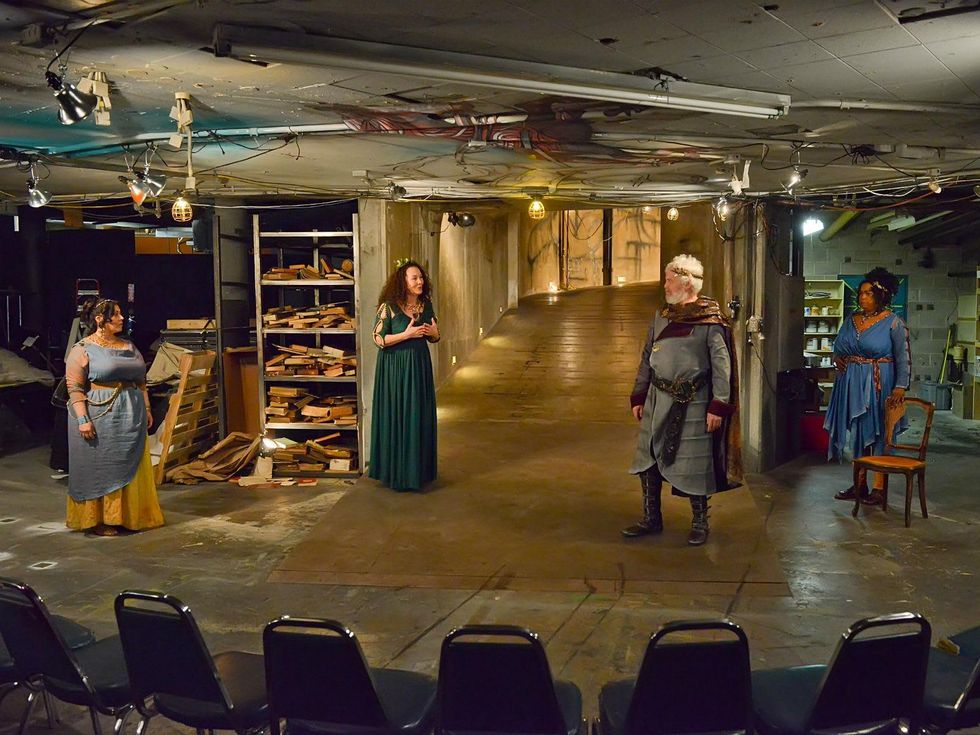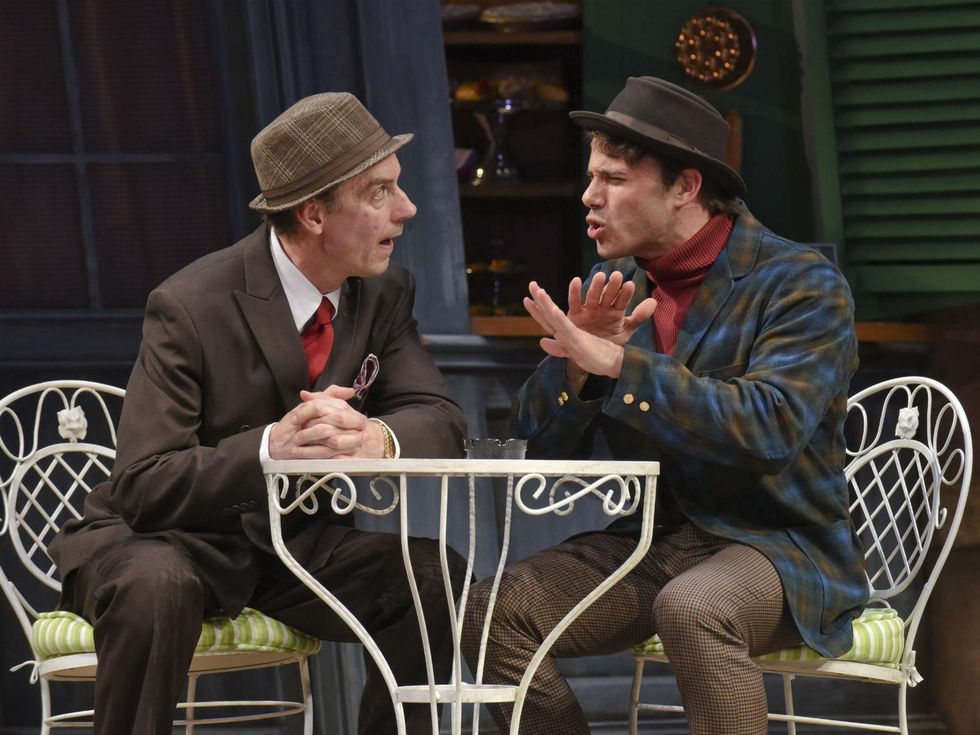Drama Plus Comedy
Fiery Medea snuffs out School for Wives in Dallas Theater Center double bill
The variety and breadth of productions Dallas Theater Center has presented over the years is enviable, but they’re taking on something relatively rare with the dual stagings of Medea and The School for Wives, both running at Kalita Humphreys Center through March 29.
On the surface, the repertory productions couldn’t seem more different, as Medea is a Greek tragedy of the highest order, while The School for Wives is a French farcical comedy. But as the two plays share almost the exact same cast and both feature indomitable women at their core, comparisons are easier to make than you might think.
Medea, playing in the Down Center Stage basement space at Kalita Humphreys, epitomizes the saying “Hell hath no fury like a woman scorned.” Medea (Sally Nystuen Vahle), cast aside by her former husband, Jason (Chris Hury), sets down a path of revenge. Friends try to persuade her to take another path, but her rage is so fierce that she refuses to be dissuaded.
The darkness and gut-wrenching emotion of Medea, combined with the forced intimacy of the small basement space, make it the stronger of the two plays.
In The School for Wives, playing on the main stage, Arnolphe (Chamblee Ferguson) has the seemingly ingenious plan of stowing away the simpleton Agnes (Morgan Laure) to eventually become his wife. But the unexpected romantic advances of Horace (Daniel Duque-Estrada) and surprising cleverness of Agnes throw a wrench in Arnolphe’s plans, forcing him to scramble to prevent his being cuckolded.
The darkness and gut-wrenching emotion of Medea, combined with the forced intimacy of the small basement space, make it the stronger of the two plays. Even though the play is more than 2,500 years old, there’s no mistaking its power, especially with Vahle’s commanding performance.
Storming in front of and around the small audience, Vahle is a force of nature whose menace can be felt even by those she’s not trying to threaten. The utilitarian space, given the bare minimum in set dressing, only heightens the suspense. When the play reaches its tragic crescendo, you’ll likely find yourself short of breath.
Although comic relief after the brutality of Medea would normally seem welcome, the efforts of the actors don’t quite connect as well in The School for Wives. Performed in rhyming meter, the play has a nice rhythm to it, but the natural humor that should come from the lines is hit-and miss.
Through sheer will, Ferguson makes the play at least somewhat enjoyable. The number of lines he has to deliver is staggering, and the fact that he performs them flawlessly while also employing all manner of goofy expressions, gestures and intonations make him the undisputed star.
Betrayal and the rejection of love are at the heart of both stories, and the opposing reactions of the two main characters to that disloyalty are interesting to juxtapose. Both characters go to extreme lengths when they find out they’ve been deceived, and somehow the comedy makes Arnolphe’s deeds come off worse than that of Medea, which is really saying something.
In an interview in DTC’s program, Ferguson suggested it was easier to go from comedy to drama, the opposite of how I experienced it, and perhaps he’s right. Through the course of their runs, Medea and The School for Wives only play on the same day four more times — March 8, 14, 21 and 29 — with Medea playing second every time but the 21st.
If you choose to see both in the same day, I’d recommend going with the comedy first: A barrelful of sugar helps the tragedy go down.





 Sculpture by Albert Scherbarth which appeared at the
Sculpture by Albert Scherbarth which appeared at the